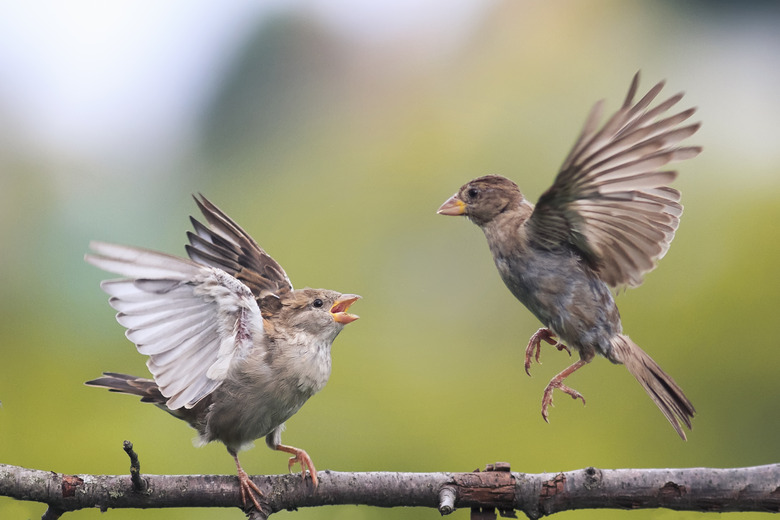How To Differentiate Between A Male & Female Sparrow
House sparrows are small brown birds that are found all over North America. They were originally imported to the United States during the 19th century to eat insects, but they quickly grew harmful, out-competing native birds for food and nesting sites. While house sparrows are not the only sparrows in the world, they are by far the most common in the United States. Distinguishing between the male and female house sparrow is a straightforward task, easily accomplished without any special equipment.
Step 1
Look at the sparrow's head. The top of a male sparrow's head is dark gray lined with streaks of vibrant chestnut, while a female's head is more dusty brown in color.
Step 2
Look at the throat. Male sparrows have a black band at their throat, while the female's throat is a pale brown.
Step 3
Check the bird's beak. During the breeding season, which for house sparrows begins in late winter and extends through the spring, the male has black beak, while the female's beak is dun. During the other months, the male's beak is identical to the females.
Step 4
Examine the bird's coloring overall. The male sparrow has darker and more vibrant plumage than the female bird, which has dull gray-brown plumage.
Cite This Article
MLA
Ma, Lanh. "How To Differentiate Between A Male & Female Sparrow" sciencing.com, https://www.sciencing.com/differentiate-between-male-female-sparrow-8272168/. 13 March 2018.
APA
Ma, Lanh. (2018, March 13). How To Differentiate Between A Male & Female Sparrow. sciencing.com. Retrieved from https://www.sciencing.com/differentiate-between-male-female-sparrow-8272168/
Chicago
Ma, Lanh. How To Differentiate Between A Male & Female Sparrow last modified March 24, 2022. https://www.sciencing.com/differentiate-between-male-female-sparrow-8272168/
